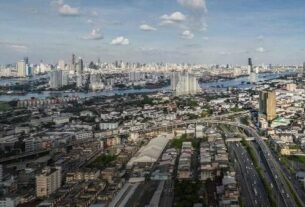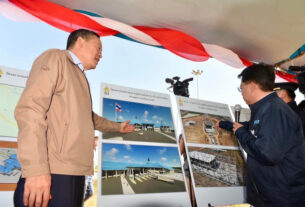 Kuala Lumpur ranked as most affordable city in ASEAN for expatriate workers
Kuala Lumpur ranked as most affordable city in ASEAN for expatriate workers
Kuala Lumpur is one the least expensive cities in ASEAN for expats, a new survey has revealed.
According to the 2021 Cost of Living Survey by global human resources consultancy firm Mercer, Kuala Lumpur ranked in 152nd place out of 209 cities surveyed.
The survey, now in its 27th year, ranks cities across 10 different categories by examining prices on things such as housing, transportation, utilities, food, recreation and entertainment and alcohol and tobacco. The survey was conducted in March of this year.
The survey cited currency fluctuations and deflation among the reasons for Kuala Lumpur’s lowly ranking.
Elsewhere in ASEAN, Ho Chi Minh City and Hanoi in Vietnam ranked in 143rd and 139th places, respectively, while Phnom Penh in Cambodia was found to be slightly more expensive for expatriate workers, ranking in 125th place.
Manilla and Jakarta were ranked in 79th and 101st place respectively.
In Thailand, Bangkok dropped 11 places from its ranking in 2020 to 46th place, the fall also cited to currency fluctuations.
Perhaps unsurprisingly, Singapore was ranked as the most expensive city for expatriate workers, ranking in 7th place.
Overall, Asian cities dominated the list, with Ashgabat in Turkmenistan found to be the costliest city for international employees.
Hong Kong dropped to 2nd place, while Beirut and Tokyo were ranked in 3rd and 4th place respectively.
“Across the region, companies are actively reassessing their talent and mobility strategies in light of the complex challenges brought on by Covid-19. Companies are realising more than ever that they need to diversify their mobility scenarios and related compensation practices,” Julia Radchenko, Global Mobility Leader, Asia Pacific, said.
“And it is no longer about just geographical mobility, it is about talent mobility which implies lateral moves, distributed workforce, geographical mobility, international remote working, virtual assignments, etc.
“What we’ve seen is that companies are exercising more flexibility to accommodate the different personal situations of employees. Broadly speaking, companies are now more open to International remote working arrangements, allowing employers to perform the same role remotely as they would if they were to relocate.
“That said, international remote working arrangements bring with it other complexities such as determining the right compensation and whether such arrangements can fully replicate the importance and impact of having someone in a specific market.”
Source: Aseannow.com



